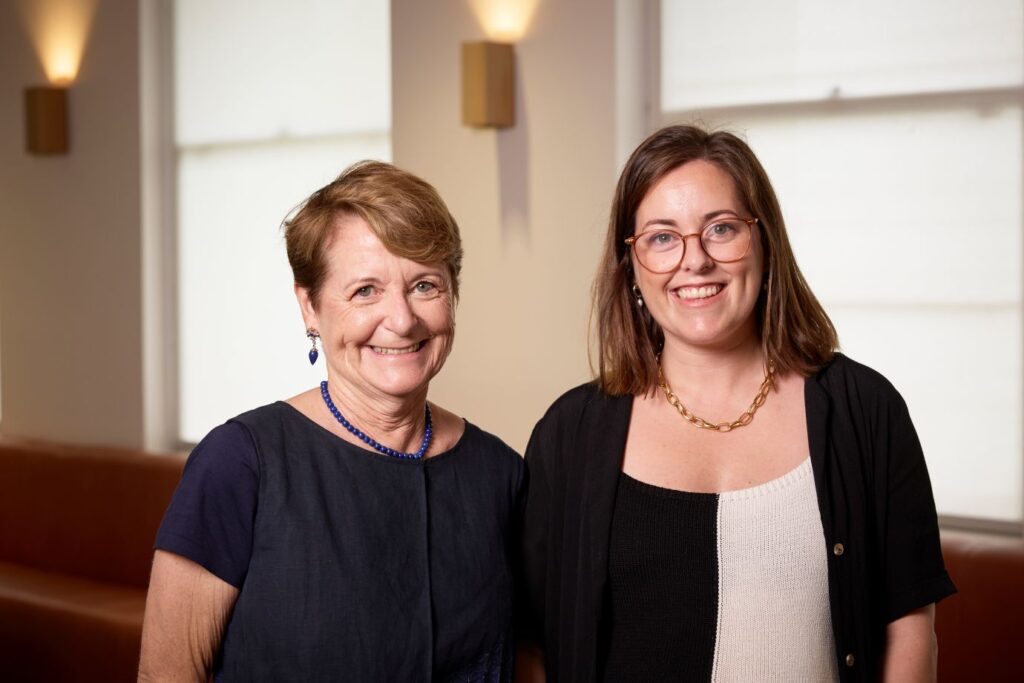A $50 million donation will give a massive boost to endometriosis research in Australia with the establishment of a world-first research institute at UNSW.
The Ainsworth family, led by Anna and Lily Ainsworth, have committed $50 million over 10 years to establish the Ainsworth Endometriosis Research Institute (AERI) at UNSW. It has the potential to make Australia a global leader in women’s health and endometriosis research.
The institute will bring together top scientists, clinicians and philanthropists from England, Canada, Denmark, India and the US, to accelerate breakthroughs in diagnosis and treatments.
The donation from the Ainsworth family is the largest known philanthropic contribution by a family to women’s health in Australia. The Ainsworth family are the owners of one of the world’s largest gambling machine companies.
Lily Ainsworth has lived with endometriosis since she was a teenager.
“I’ve had endo pain since I was 15 years old. While my fertility hasn’t been impacted, I experience chronic, daily pain and severe flare ups that debilitate me for days or weeks on end,” she said.
“Like many others, endometriosis has affected my education, my career, my relationships, my family, and dictates how I go about each and every day. This reality is shared with millions of people living with endo around Australia and the world. We believe this can change.
“The Ainsworth Endometriosis Research Institute is more than an exceptional research institute; it is hope. Hope for those living with endometriosis now and in the future, that they will be able to live full, happy and healthy lives.”
Endometriosis can cause severe pelvic pain, fatigue and in some cases, infertility. Approximately one in seven women in Australia will have it by the age of 49.
Globally, about 200 million people suffer from endometriosis.
Research into the condition has been underfunded for years, often leaving those living with it to go without adequate diagnosis and treatment.
UNSW Vice-Chancellor and President Professor Attila Brungs said the contribution from the Ainsworth family will be transformative.
“I would like to thank the Ainsworth family for their generosity and the positive societal impact it will enable. The University and its partners are incredibly honoured to be at the forefront of this groundbreaking initiative together with the Ainsworth family,” Prof. Brungs said.
“The Ainsworth Endometriosis Research Institute represents an historic moment in women’s health. This unprecedented collaboration will not only form the future of endometriosis research but also accelerate our ability to provide real, tangible solutions that quite literally change the lives of each of the hundreds of millions of people globally impacted by this condition.”
Gynaecological Cancer Research Group lead at UNSW, Professor Caroline Ford, said the aim of the institute is to enable a precision medicine approach to endometriosis detection, treatment and management.
“Each person’s endometriosis is unique and for the best results, treatment needs to be personalised. We have seen how effective this approach can be in cancer treatment and will be applying many of the successful strategies here, such as the power of genomics and targeted treatment,” Prof. Ford said.
“In order for doctors to deliver precision medicine they need a solid evidence base to support their decisions. This has been a challenge due to a lack of investment in research. This substantial investment will allow researchers for the first time to build a solid understanding of endometriosis biology and pathogenesis that will lead to improved detection, management and treatment.”
Feature image: Anna and Lily Ainsworth.


